The Two Faces of the Taliban: Crossing checkpoints in Afghanistan
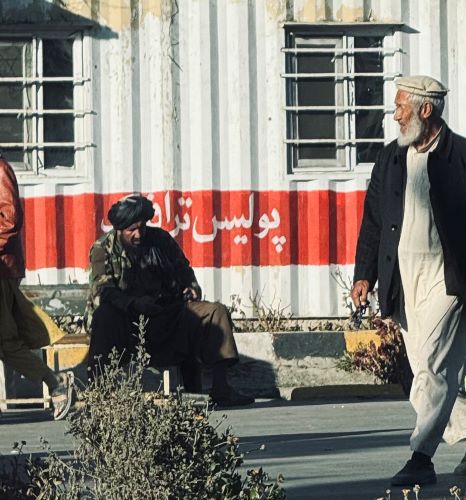
A Taliban commander sitting in front of a checkpoint is communicating via radio. Because I had to show my smartphone every time I went through numerous inspections, I deleted most of the photos I took during the interview. This is one of the photos that barely survived.
Editor’s Note: The Taliban, an Islamic extremist armed group, has ruled Afghanistan twice (1996-2001 and 2021-present).
The Taliban’s first term in power in Afghanistan was marred by tyranny that suppressed all freedoms. The Taliban, who started their second term in power in 2021, say they are different from the way they were before, but the West’s gaze towards them is not much different from the past.
Which is the real face of the Taliban: what the Taliban says they are or what the West says about them? In December 2023, Lee Shin-seok, a reporter specializing in conflict areas for AsiaN, who dealt with Afghanistan under the Taliban with his body and mind, tells the story of the Taliban and Afghanistan as they are.
SEOUL: The Taliban seems to control everything in Afghanistan, including politics, society, culture, and the daily lives of citizens. At least, that was the case in the capitals Kabul, Kandahar, and Bamiyan where I stayed. What they cannot touch is the diplomatic missions of other countries.
You must obtain a visa to enter Afghanistan, but Afghan visas cannot be issued from European countries. Instead, an Afghan visa can be issued through neighboring countries such as Pakistan, India, Iran, United Arab Emirates, and Qatar.
In Islamabad, the capital of Pakistan, or Peshawar, which is close to Afghanistan, you have to pay about $100, and in places like the United Arab Emirates or Qatar, you have to pay about $300. I got my visa issued in Karachi, Pakistan, and paid about $280 including the expediting fee.
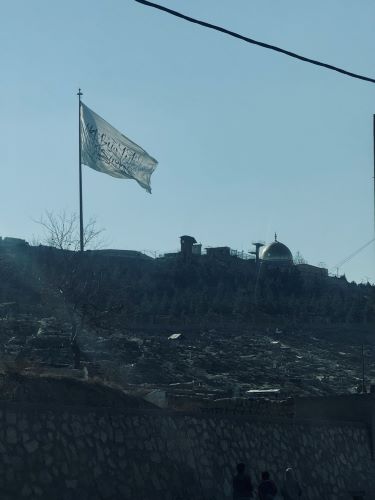
Afghan flags fly throughout downtown Kabul. The words on them are the creed of Islam: ‘There is no god but Allah and Mohammed is His Messenger’
After going through various procedures to obtain a visa, I headed to the immigration checkpoint at the Afghan border area. The entry screening was conducted under the leadership of the Taliban. The staff at the screening table and the monitors at the back were also Taliban. The Taliban seemed to be watching the entire process at the screening center. Past the screening, there is a checkpoint, controlled by soldiers, set up on the road leading from the border. The soldiers at the checkpoint also moved under the control of the Taliban.
Inspections when entering or leaving the city or on the outskirts between cities were particularly strict. There are checkpoints controlled by soldiers and checkpoints controlled by the Taliban, and the Taliban oversees the overall supervision.
It is said that they even search the trunks of citizens’ cars as well as their luggage, and if they are taken away, they will go through untold hardships. At first, I thought it only happened in large cities with large populations, but it was the same situation in any city in Afghanistan.
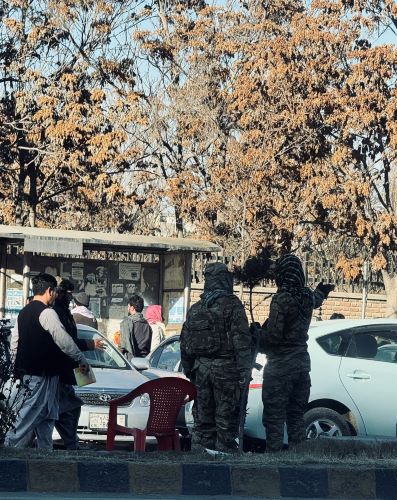
On Graduation Day at Kabul University of Education, Taliban soldiers stand guard
The Taliban has spread out a network centered around the Afghan capital, Kabul. Kabul is a basin surrounded by mountains, and Taliban units are stationed between the mountains, overlooking the city. Of course, checkpoints are set up throughout downtown Kabul.
In areas with high security, it was necessary to pass 10 checkpoints over about 2km. Among them, there may be checkpoints that I passed without even knowing about them. At the checkpoint, the ID card and proof of residence (for foreigners, passport and temporary residence permit) are checked.
When driving around the city, you would see white SUVs patrolling the streets. They are like a symbol of power in Afghanistan. The white SUV move through the city at a faster speed than other vehicles. Belonging to the Taliban’s managerial level, they give instructions to guards, manage work shifts, and stop at checkpoints to receive work reports.
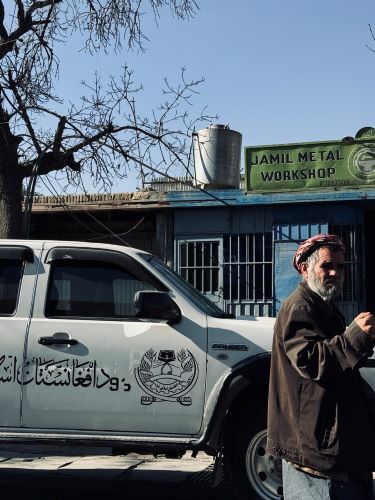
In Afghanistan, the white SUV is a symbol of power. Considering that the Taliban emblem and flag are engraved on it, the owner of the vehicle is presumed to be a Taliban official.
Security searches are also conducted when entering crowded places such as large commercial buildings, and local people tend to cooperate actively. From the perspective of a foreigner like me, the frequent checks and searches were quite inconvenient, but on the other hand, I understood the feelings of the Afghan people who had suffered from war and terrorism for a long time.
In downtown Kabul, Taliban soldiers are often seen patrolling the streets. They wear traditional military uniforms and shabby hats and carry firearms loosely on their shoulders. Soldiers keep their rifles when they eat at cafeterias, and they often get along well with ordinary citizens who seem to be their acquaintances.
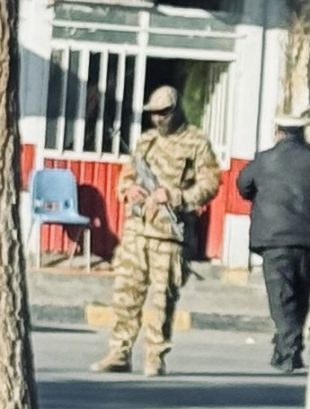
Taliban soldiers patrolling the streets. All of their gun muzzles are kept downward.
During my stay in Kabul, I did not hear a single gunshot in the city. Although their military discipline seemed lax at first glance, they had a long history of combat and seemed to follow strict rules, at least when it came to firearms. The gun muzzles of the Taliban soldiers encountered in downtown Kabul were all kept downward.

























































